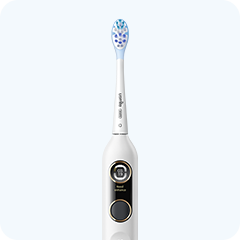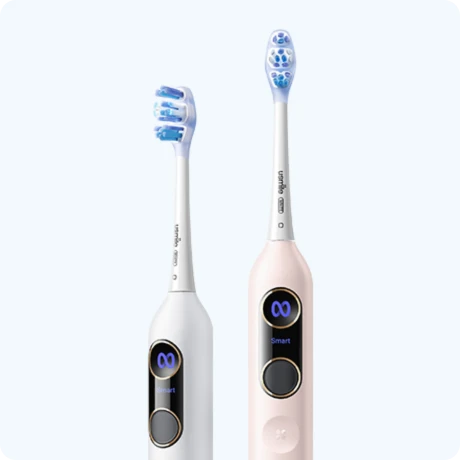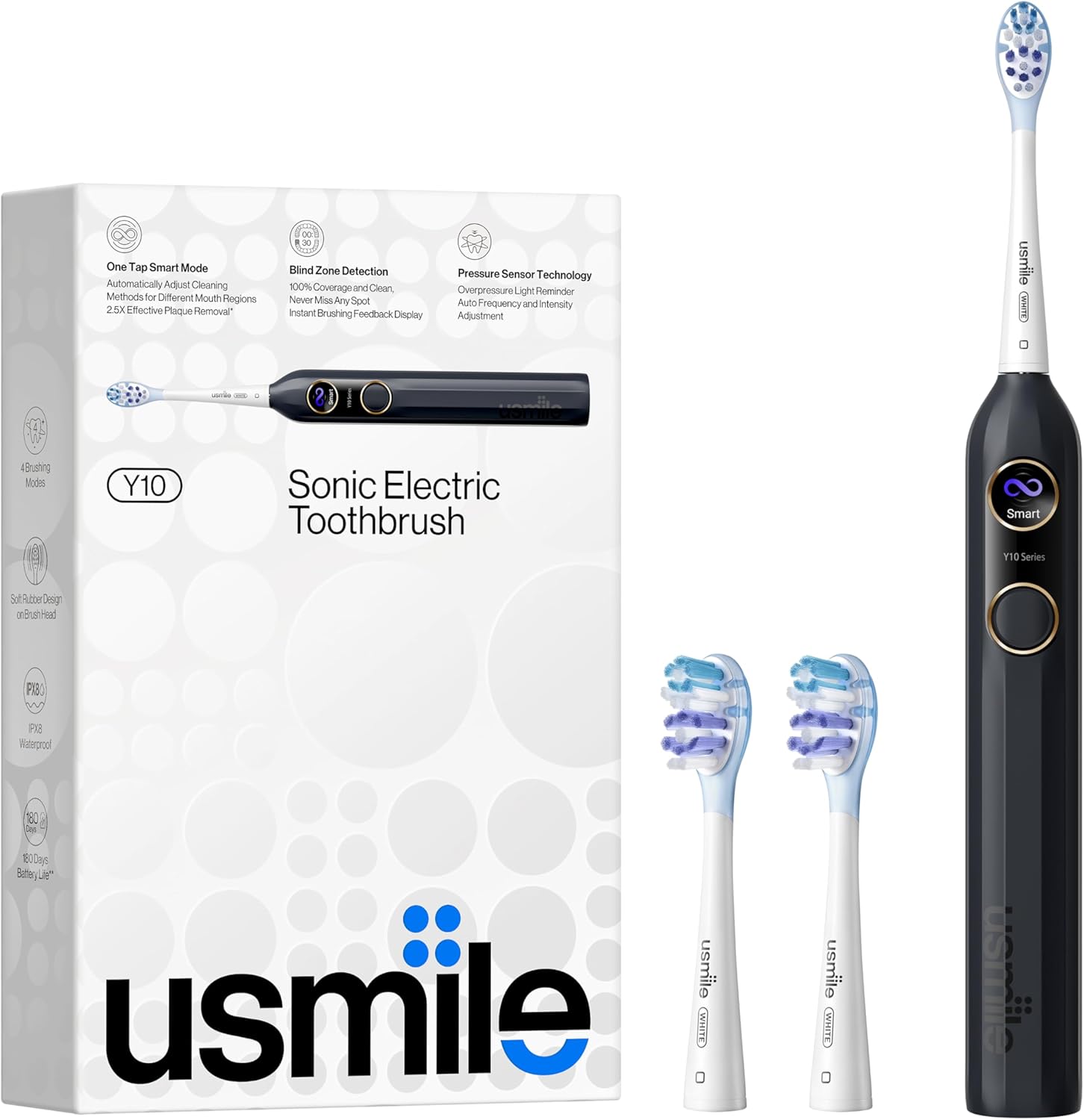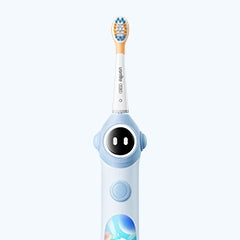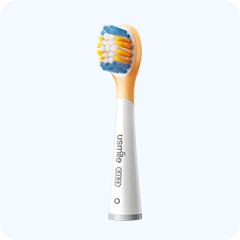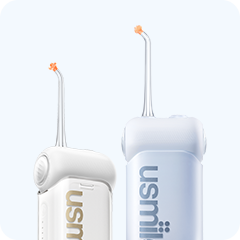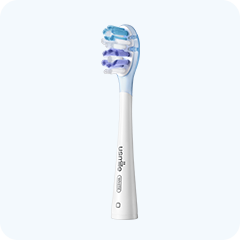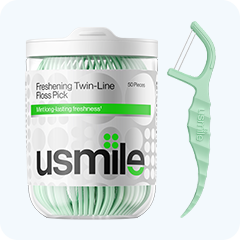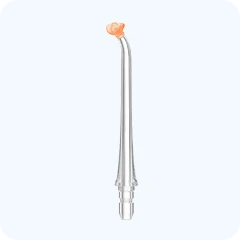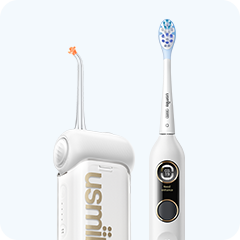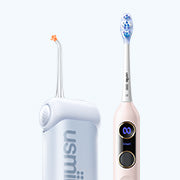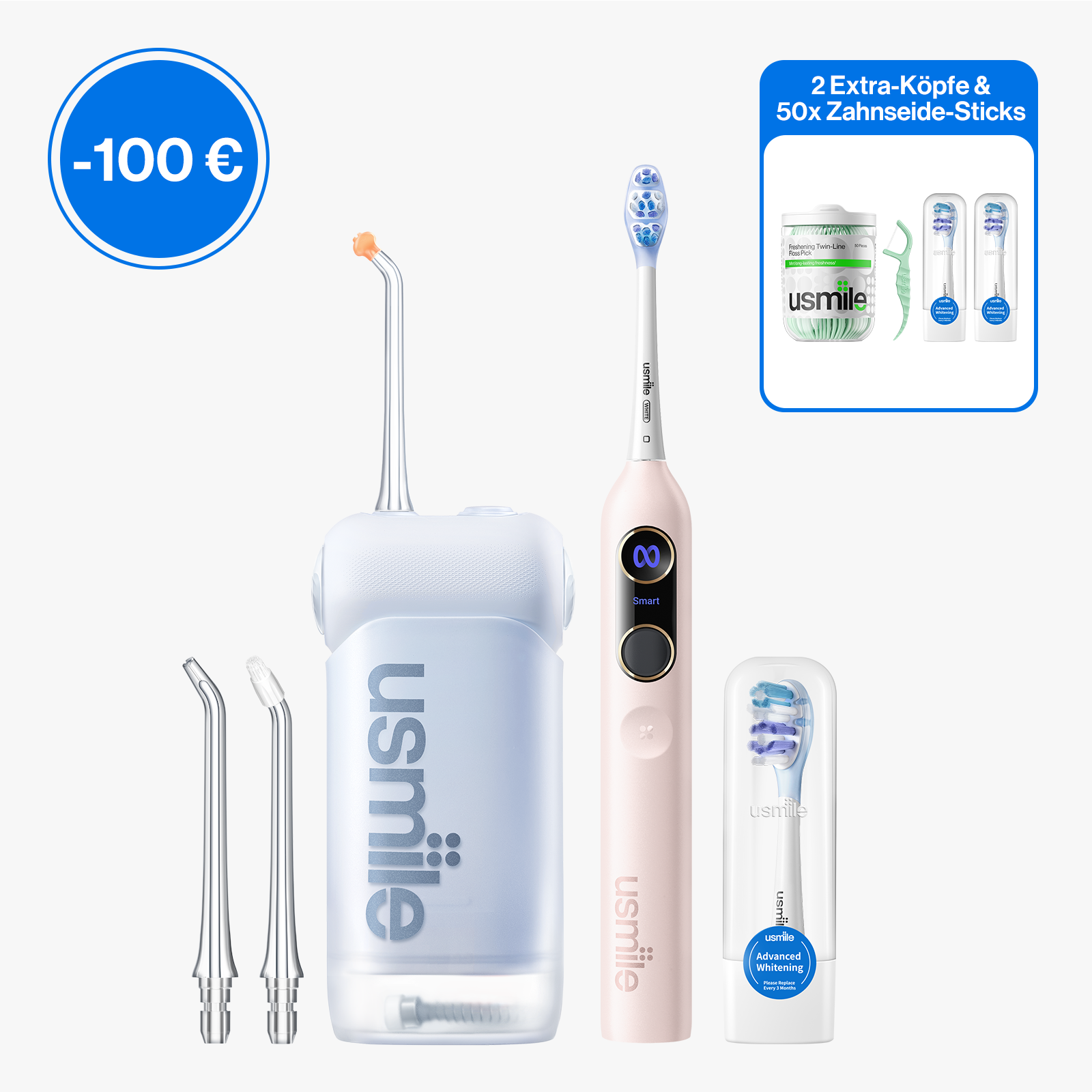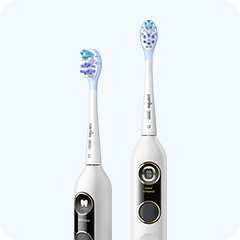1. Höhere Anschaffungskosten
Einer der größten Nachteile einer Munddusche sind die Anschaffungskosten . Während Zahnseide nur ein paar Dollar kostet, kann ein hochwertiger elektrischer Mundduschen-Apparat je nach Ausstattung zwischen 30 und 100 Dollar oder mehr kosten.
Dennoch bieten Mundduschen von usmile ein hervorragendes Preis-Leistungs-Verhältnis mit langlebigen Batterien, mehreren Druckeinstellungen und reisefreundlichem Design – was sie für viele zu einer klugen langfristigen Investition macht.
2. Benötigt Strom oder Aufladen
Im Gegensatz zu herkömmlicher Zahnseide benötigen Mundduschen Strom . Unabhängig davon, ob es sich um ein kabelgebundenes Gerät oder eine tragbare Munddusche handelt , benötigen Sie Zugang zu einer Stromquelle oder müssen dafür sorgen, dass das Gerät regelmäßig aufgeladen wird. Obwohl usmile-Modelle mit einer langen Akkulaufzeit und USB-Aufladung ausgestattet sind, kann diese zusätzliche Anforderung auf Reisen oder bei Stromausfällen unpraktisch sein.
3. Sperrig für Reisen
Manche Benutzer finden Mundduschen weniger tragbar als eine einfache Zahnseidepackung. Große Tischgeräte können sperrig sein, und selbst kompakte Versionen nehmen im Gepäck mehr Platz ein. Um dieses Problem zu lösen, bietet usmile leichte und reisefertige Mundduschen an , die problemlos in jedes Handgepäck oder jede Sporttasche passen.
4. Mögliche Wasserverschmutzung
Die erstmalige Verwendung einer Munddusche erfordert oft eine gewisse Einarbeitungszeit. Wenn das Gerät nicht richtig positioniert ist, kann der Hochdruckwasserstrahl spritzen oder auslaufen , was zu nassen Arbeitsflächen oder Spiegeln führen kann. Profi-Tipp: Beugen Sie sich über das Waschbecken und halten Sie den Mund leicht geschlossen, um Spritzer zu vermeiden. Mit etwas Übung wird die Verwendung von Zahnseide zur Selbstverständlichkeit.
5. Kein vollständiger Ersatz für herkömmliche Zahnseide
Obwohl Mundduschen wirksam sind , insbesondere bei der Reduzierung von Plaque und der Verbesserung der Zahnfleischgesundheit, können sie Zahnseide bei der Entfernung von Ablagerungen in sehr engen Zahnzwischenräumen nicht vollständig ersetzen. Viele Zahnärzte empfehlen, beide Methoden zu kombinieren oder je nach Zahnzustand abzuwechseln. Lassen Sie sich immer von Ihrem Zahnarzt individuell beraten.
6. Regelmäßige Reinigung erforderlich
Um zu verhindern Um Bakterienansammlungen vorzubeugen , sollten Mundduschen regelmäßig gereinigt und getrocknet werden – insbesondere die Düse und der Wassertank . Dies ist zwar nicht kompliziert, stellt aber einen weiteren Wartungsschritt dar, den manche Benutzer möglicherweise übersehen.
Sollten Sie sich dennoch für eine Munddusche entscheiden?
Absolut – wenn Sie Wert auf Komfort, Effizienz und ein angenehmeres Zahnseide-Erlebnis legen. Die usmile Munddusche ist eine ausgezeichnete Wahl für Menschen mit:
1. Zahnspangen oder Zahnimplantate
2. Empfindliches Zahnfleisch
3. Schwierigkeiten bei der Verwendung von Zahnseide
4. Der Wunsch nach einem High-Tech-Upgrade für ihre Mundhygiene
Stellen Sie sicher, dass Sie die Einschränkungen verstehen, die Anweisungen genau befolgen und die Kombination mit anderen Mundhygiene-Tools in Betracht ziehen.
Abschluss
Mundduschen haben zwar einige Nachteile – etwa hohe Kosten, Lernaufwand und Stromabhängigkeit –, doch die Vorteile überwiegen oft die Nachteile, insbesondere bei einer vertrauenswürdigen Marke wie usmile . Entdecken Sie die gesamte Produktpalette der usmile Mundduschen Finden Sie ein Modell, das zu Ihrem Lebensstil passt. Mit der richtigen Wahl war es noch nie so einfach, ein sauberes, gesundes Lächeln zu bewahren.
